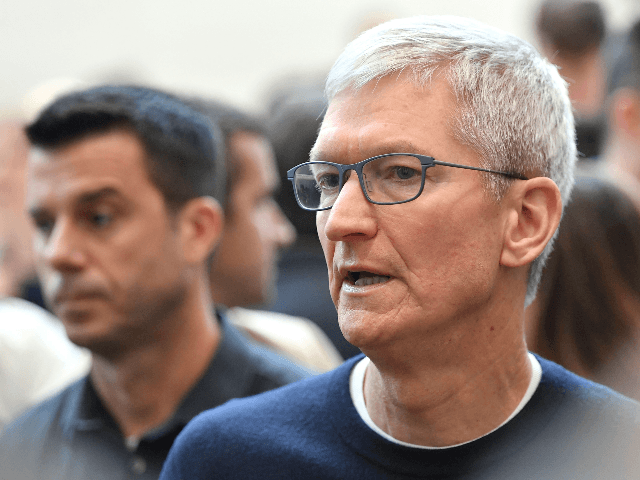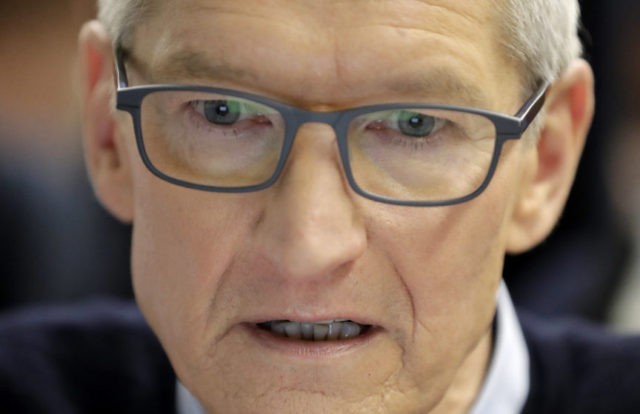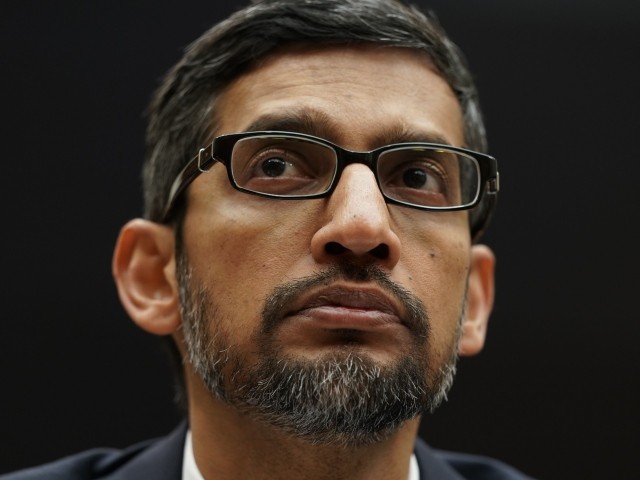South Korea has officially passed a bill designed to prevent tech giants like Google and Apple from forcing app developers to exclusively use the internet giant’s own payment systems.
The Verge reports that South Korea has passed a bill designed to stop tech giants such as Google and Apple from preventing developers from using third-party payment systems. The bill will likely be signed into law by President Moon Jae-in, whose political party proposed the bill.

In this photo provided by South Korea Presidential Blue House, South Korean President Moon Jae-in talks on the phone with Japanese Prime Minister Yoshihide Suga at the presidential Blue House in Seoul, South Korea, Thursday, Sept. 24, 2020. Suga on Thursday held his first telephone call with his South Korean counterpart since taking office, telling Moon that the neighbors should work to resolve their strained relations.(South Korea Presidential Blue House via AP).
The law is likely to cause major issues for Apple and Google who both demand that all in-app purchases made via their devices go through their respective payment processors. This allows the companies to take a 15 to 30 percent cut of all payments made via their platforms.
Under the new law, if tech companies fail to allow developers to use alternate payment processors, they could face fines of up to 3 percent of their revenue in South Korea. The law makes amendments to South Korea’s Telecommunications Business Act and could impact how Google’s Play Store and Apple’s App Store operate worldwide.

Apple CEO Tim Cook speaks with attendees during an Apple product launch event at Apple’s headquarters in Cupertino, California on September 10, 2019. – Apple unveiled its iPhone 11 models Tuesday, touting upgraded, ultra-wide cameras as it updated its popular smartphone lineup and cut its entry price to $699. (Photo by Josh Edelson / AFP) (Photo credit should read JOSH EDELSON/AFP/Getty Images)
Google and Apple are both reportedly quite unhappy with the new law, with a Google spokesperson stating:
Just as it costs developers money to build an app, it costs us money to build and maintain an operating system and app store. We’ll reflect on how to comply with this law while maintaining a model that supports a high-quality operating system and app store, and we will share more in the coming weeks.
Apple has not responded to the recent news of the law’s passing but did tell the Verge during the proposal of the law:
The proposed Telecommunications Business Act will put users who purchase digital goods from other sources at risk of fraud, undermine their privacy protections, make it difficult to manage their purchases, and features like “Ask to Buy” and Parental Controls will become less effective. We believe user trust in App Store purchases will decrease as a result of this proposal—leading to fewer opportunities for the over 482,000 registered developers in Korea who have earned more than KRW8.55 trillion to date with Apple.
Read more at the Verge here.
Lucas Nolan is a reporter for Breitbart News covering issues of free speech and online censorship. Follow him on Twitter @LucasNolan or contact via secure email at the address lucasnolan@protonmail.com


COMMENTS
Please let us know if you're having issues with commenting.